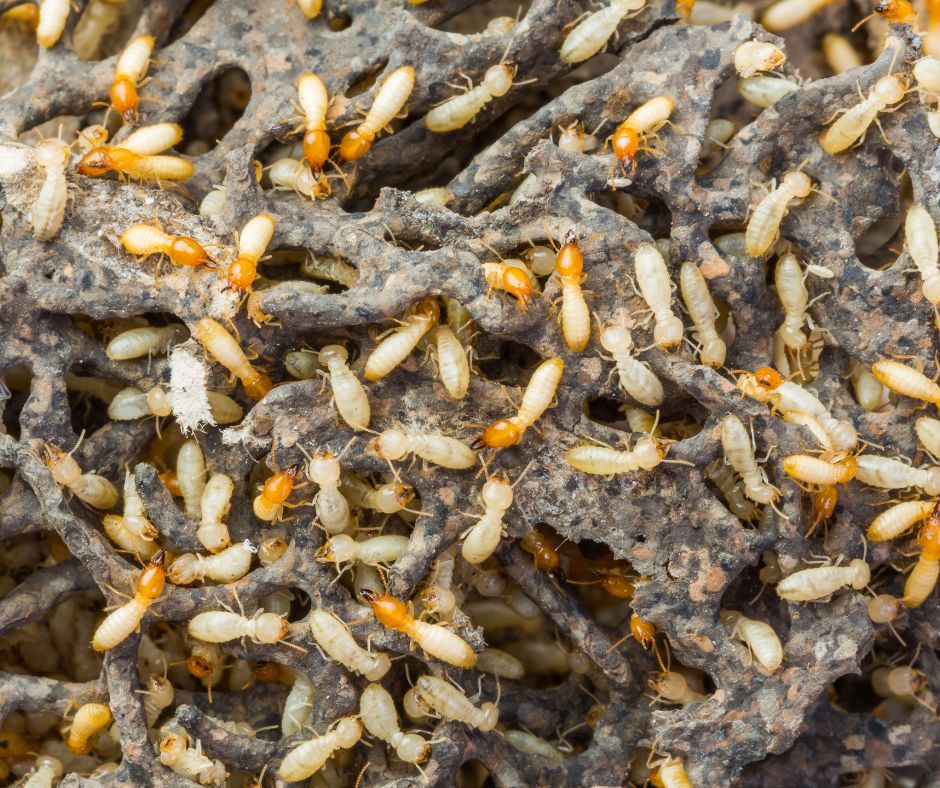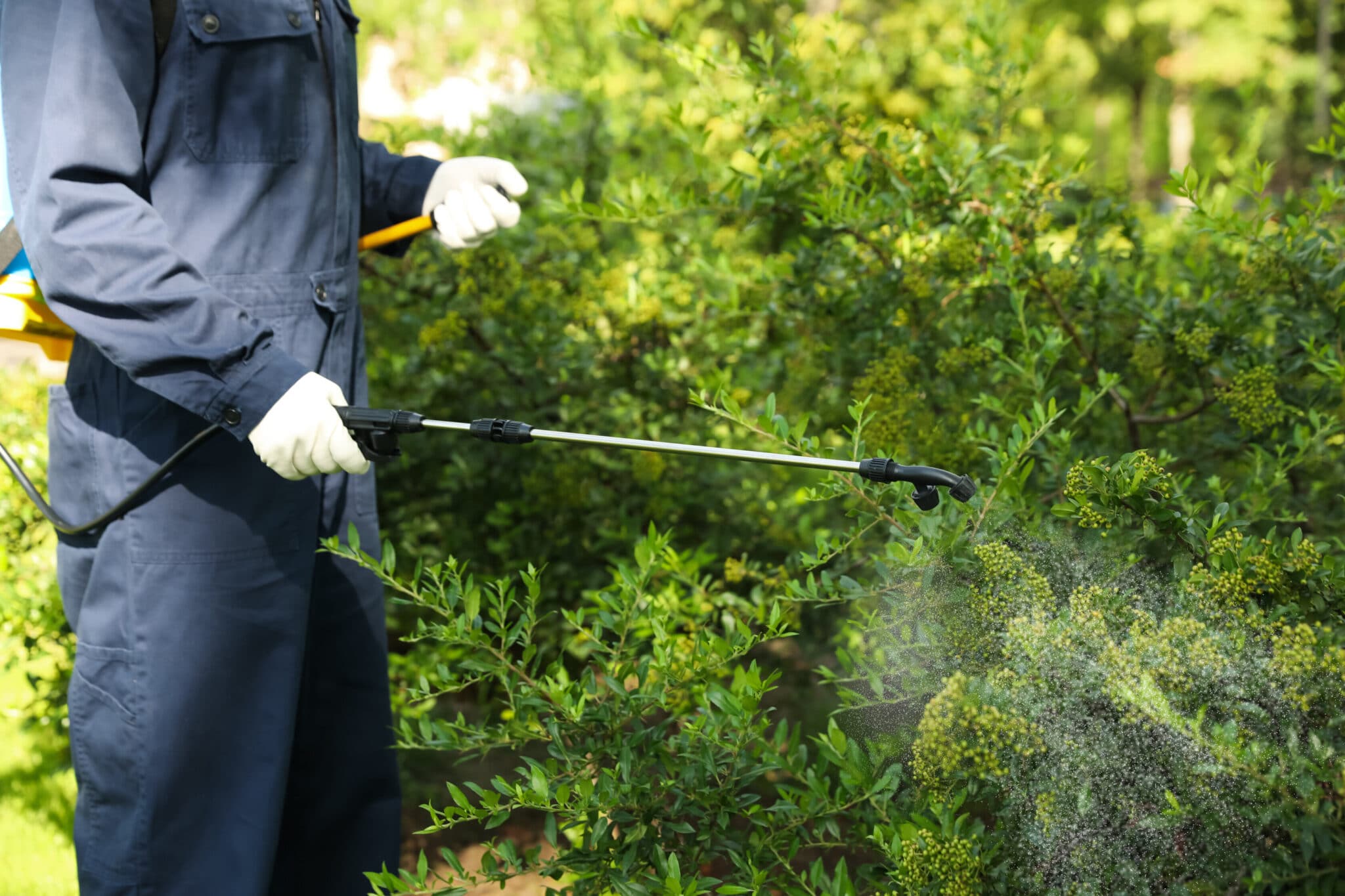Effective Termite Treatment Port Charlotte to Protect Your Property
Discover the current Advancements in Parasite Control and Exactly How to Apply Reliable Therapy Solutions
In current years, the field of pest control has actually seen significant innovations, driven by the demand for sustainable and effective treatment remedies. Innovative approaches such as Integrated Parasite Administration (IPM) combine environmentally friendly methods with sophisticated technology, improving both efficacy and ecological responsibility.
Eco-Friendly Insect Control Options
Recently, the need for environmentally friendly parasite control choices has surged as companies and homeowners alike look for sustainable choices to traditional chemical therapies. This change is driven by expanding ecological awareness and a need to lessen the health threats connected with artificial pesticides.

Environment-friendly pest control methods include a range of techniques that focus on making use of all-natural materials and techniques. Integrated Bug Management (IPM) is one such approach, combining organic, cultural, and mechanical strategies to handle bug populations while reducing reliance on chemicals (Wildlife removal services). This alternative technique emphasizes prevention via habitat manipulation and the intro of natural killers, thereby promoting a well balanced community
One more popular option is the use of organic pesticides originated from plants, which tend to be less dangerous to non-target organisms. Products like neem oil and diatomaceous planet have actually obtained traction for their effectiveness in managing parasites while positioning very little dangers to human wellness and the setting.
Additionally, exemption methods, such as securing entry points and maintaining tidiness, play an important role in environment-friendly parasite monitoring. By taking on these lasting practices, individuals and organizations can efficiently handle bugs while promoting a healthier world for future generations.
Smart Modern Technology in Pest Management
Advancement is improving the landscape of parasite administration, with wise technology emerging as a pivotal force in enhancing performance and efficiency - Wildlife removal services. The assimilation of Web of Things (IoT) devices, expert system (AI), and information analytics is reinventing just how insect control specialists come close to problems
Smart catches geared up with sensors can discover insect activity in real-time, sending out immediate informs to drivers. This enables timely feedbacks, lessening damages and minimizing the need for comprehensive treatments. Additionally, AI formulas examine historical information to forecast bug behavior, allowing positive treatments based upon environmental problems and problem patterns.
Drones and automatic cars are likewise playing a considerable duty in pest management, offering aerial assessments of big locations, identifying hotspots, and even dispersing targeted therapies. These technologies not only enhance procedures but additionally enhance safety and security by restricting human exposure to possibly damaging chemicals.
Additionally, mobile applications encourage customers to monitor bug task and access expert suggestions, fostering a collaborative strategy to pest management. Overall, the adoption of clever technology is setting a brand-new standard in pest control, emphasizing data-driven choices and lasting techniques that ultimately benefit both house owners and specialists alike.
Integrated Parasite Monitoring Techniques
Integrated Parasite Monitoring (IPM) utilizes a holistic approach to pest control, incorporating various approaches to successfully handle pest populations while decreasing threats to human health and the atmosphere. IPM focuses on recognizing the pest life cycle, their all-natural adversaries, and the community in which they thrive.
Among the basic components of IPM is keeping track of pest populaces via regular examinations and data collection. This permits the identification of parasite limits, establishing when intervention is required. Social practices, such as crop hygiene, environment, and rotation manipulation, are vital in lowering bug occurrence and promoting plant wellness.
Mechanical controls, consisting of obstacles and catches, are additionally important in IPM. These approaches can literally get rid of or prevent parasites without making use of chemicals. When necessary, the judicious application of chemical controls is employed, concentrating on targeted therapies that lessen environmental influence.
Education and cooperation amongst stakeholders, including farmers, bug control specialists, and the neighborhood, are important for the check over here effective execution of IPM strategies. By focusing on sustainable methods, IPM not just addresses pest issues yet also promotes a healthier ecological community.
Biological Control Methods
Various organic control methods are significantly recognized for their performance in taking care of parasite populaces while promoting environmental equilibrium. These techniques harness all-natural predators, parasites, and microorganisms to reduce pest numbers without counting on synthetic chemicals. For instance, the introduction of ladybugs can effectively manage aphid populations, while nematodes target soil-dwelling bug larvae.
In addition, the use of microbial pesticides, such as Bacillus thuringiensis (Bt), offers an eco-friendly alternative for taking care of caterpillar insects. These products particularly target pest types, lessening damage to beneficial pests and pollinators. Conservation biological control highlights enhancing environments for natural adversaries, such as birds and useful insects, thereby encouraging their presence in farming systems.
Research remains to expose cutting-edge approaches within this area, such as using scents to disrupt pest breeding patterns or the advancement of biocontrol agents with hereditary engineering. Applying these approaches can result in lasting bug monitoring practices that alleviate the dependence on chemical interventions, inevitably cultivating healthier communities. As understanding of these techniques grows, they are coming to be integral components of integrated insect monitoring (IPM) methods, offering an equilibrium in between efficient insect control and environmental stewardship.
Do It Yourself Bug Control Solutions
As home owners look for reliable ways to deal with parasite problems, DIY insect control options have gained appeal for their availability and cost-effectiveness. These approaches empower individuals to resolve infestations utilizing readily available products and techniques, often without the need for expert treatment.

Additionally, keeping proper cleanliness and regular evaluations can prevent bug access and nesting (Wildlife removal services). Basic practices, such as securing fractures, eliminating food resources, and decluttering, can substantially lessen bug populations. Catches, both homemade and commercially offered, can also supply effective solutions for monitoring and regulating certain parasites like rodents or insects

Verdict
The combination of environmentally friendly bug control alternatives, clever innovation, and ingenious management strategies provides a thorough approach to efficient parasite monitoring. By welcoming Integrated Parasite Management (IPM) and learn this here now making use of biological control methods, together with DIY options, sustainable and responsible pest control can be achieved. These improvements not only enhance the performance of pest management methods yet also add to a much healthier setting. Implementing these approaches fosters a well balanced ecosystem while properly dealing with pest populations.
Environmentally friendly parasite control methods include a range of approaches that prioritize the use of natural substances and techniques. Integrated Insect Management (IPM) is one such method, combining organic, social, and mechanical strategies to take care of bug populations while decreasing dependence on chemicals. As recognition of these strategies grows, they are becoming integral parts of incorporated bug management (IPM) strategies, offering an equilibrium in between efficient parasite control and environmental stewardship.
The combination of environmentally friendly bug control alternatives, clever technology, and ingenious administration techniques presents an extensive method to effective pest monitoring. By accepting Integrated Pest Management click to find out more (IPM) and making use of organic control methods, along with Do it yourself services, sustainable and responsible insect control can be achieved.